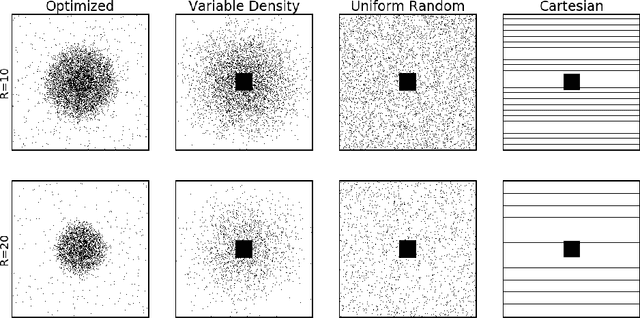Learning-based Optimization of the Under-sampling Pattern in MRI
Paper and Code
Jan 07, 2019



Acquisition of Magnetic Resonance Imaging (MRI) scans can be accelerated by under-sampling in k-space (i.e., the Fourier domain). In this paper, we consider the problem of optimizing the sub-sampling pattern in a data-driven fashion. Since the reconstruction model's performance depends on the sub-sampling pattern, we combine the two problems. For a given sparsity constraint, our method optimizes the sub-sampling pattern and reconstruction model, using an end-to-end learning strategy. Our algorithm learns from full-resolution data that are under-sampled retrospectively, yielding a sub-sampling pattern and reconstruction model that are customized to the type of images represented in the training data. The proposed method, which we call LOUPE (Learning-based Optimization of the Under-sampling PattErn), was implemented by modifying a U-Net, a widely-used convolutional neural network architecture, that we append with the forward model that encodes the under-sampling process. Our experiments with T1-weighted structural brain MRI scans show that the optimized sub-sampling pattern can yield significantly more accurate reconstructions compared to standard random uniform, variable density or equispaced under-sampling schemes.
 Add to Chrome
Add to Chrome Add to Firefox
Add to Firefox Add to Edge
Add to Edge